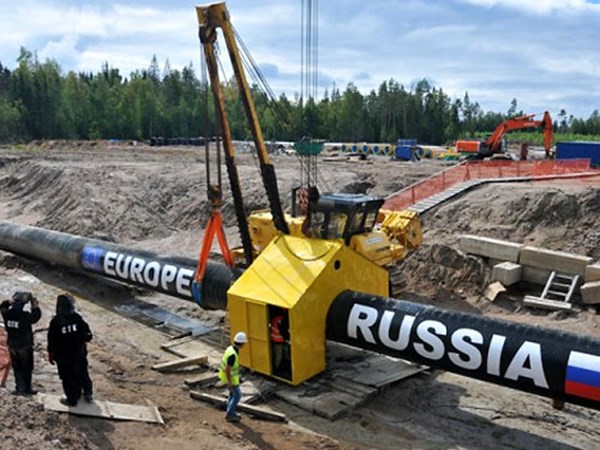Germany to abandon Nord Stream 2 if US imposes sanctions
The German concern Uniper, one of Gazprom’s five European partners participating in the construction of the Nord Stream 2 gas pipeline, will be forced to pull out of the project if it is placed under US sanctions, said Uniper board member Christopher Delbrück on Wednesday, as reported by Down Jones.
According to him, the risk of sanctions exceeds the possible losses for the concern if it withdraws from the collaboration with Gazprom.
“Of course, Uniper cannot risk US sanctions,” he said, “In that case, we would be excluded from the payment system, and would no longer be able to use the dollar in trade operations, which is unacceptable.”
“We still hope that all parties will act reasonably in this situation,” Delbrück emphasized, alluding to the bill on anti-Russian sanctions which was passed by the US government last year.
The document gives the US president the power to put sanctions on any gas pipeline project which would be used by Russia to export hydrocarbons. All investors with a stake greater than $5 million would also be placed under restrictions.
Although Donald Trump has not yet exercised this right, the preparation of a new package of sanctions has nearly been completed, sources told The Wall Street Journal in the middle of August. According to the sources, restrictions may be placed both on the companies involved in the construction and the banks providing the financing. According to the US’s current Foreign Policy, even European companies can be placed under sanctions: in addition to Uniper, this could apply to the German company Wintershall, the British-Dutch company Royal Dutch Shell, Austrian OMV and French Engie. Deputy Engie CEO Pierre Chareyre said in July last year that, if sanctions become a reality, the company will immediately cease all investments in the project.
A strict approach to Nord Stream 2, which is designed to deprive Ukraine of income from gas transit to Europe, is advocated by US Assistant Secretary of State for European and Eurasian Affairs Wess Mitchell, US National Security Adviser John Bolton, and a number of other high-ranking US officials.
Measures capable of “shielding” Nord Stream 2 “from possible non-competitive and illegal attacks from third countries” were discussed by Russian President Vladimir Putin and German Chancellor Angela Merkel on August 19, said Kremlin Spokesman Dmitry Peskov.
According to Peskov, the conversation was “useful and timely”, but did not result in any specific agreements.
